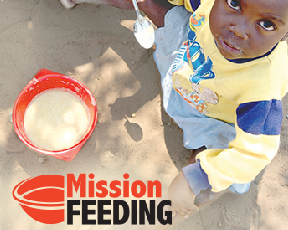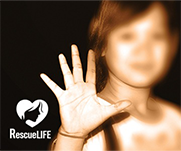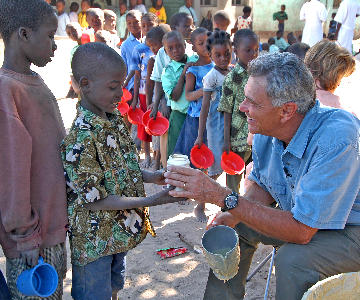One of the joys of my life is interacting with children. I just love to watch how they go about their learning. Usually, at around the age of one, each child begins to attempt to walk. Having mastered the art of rolling, crawling and finally standing, the desire to walk seems to fully capture their attention. The challenge of letting go of the security of what they are holding onto, versus the desire to do something they were born to do, creates an enormous tension. While standing on their cute, chubby legs, legs that have never ventured into this unknown territory, and with much encouragement from all those around, they finally let go and take their first steps. After one step and then perhaps another, they take what we would all call an expected fall.
Take a moment to think about it from the child’s perspective because, the reality is, you were once that child. It is amazing how everybody around that child celebrates the moment of triumph, even though it is actually mixed with much failure. The child falls, as expected, but then they try again, and fail again, while everyone continues to celebrate. We call the relatives; we bring out the cameras; we blow up the balloons. Amongst all this celebrating, the baby gets up again and again and continues the learning process: more steps, more falls. We keep encouraging, they keep getting up and, eventually, they are walking. You see, the greatest of their advancements is based on the learning that results from their failure, and that is true for every part of life!
Unfortunately, as we grow older, the cheering seems to stop and the understanding that failure is always in the equation of success goes unvoiced. Then the day arrives when we fail and we find ourselves alone, with very little encouragement to make another attempt. The pressure of the failure takes centre stage and, instead of getting up and trying again, as we did when we were a small child, we freeze. The shame of making a mistake, of not doing enough or being enough cripples us to the point that we are unable to step out and try again.
I am not sure at what age it happens but, without even knowing it, there is a sudden and deathly silence when we fail. And, instead of being cheered on to try again, we feel like everyone has left the room. This deafening silence can become so loud that it pierces our internal world with a repeating accusation: “You just failed, you just failed, you just failed… you’re a failure, you’re a failure”. As we struggle back to our feet (although, sadly, some of us never do) and look around, we find the cheering crowd has now gone and the inner sense of emptiness dominates so strongly. All of a sudden, we become acutely aware that failure has taken place. No one ever told us that potential continues only when we understand that learning results from the process of falling and rising.
One of the first questions we all need to answer is, “When did I stop getting up?” How old were you when you stopped understanding that you are still human and failure is a crucial part of your development and, also, that failure is in the future of anyone prepared to reach for their God-given potential?
Let’s replay the baby’s first steps: one step, two steps and then a fall that ends in a bruise or two. Now, imagine if the baby made a decision to never get up again. The extended family leaves, the cameras stop rolling and the party finishes. You see, the baby has failed and there will never be another attempt. I think you can see where I am coming from. We can’t give up just because we have experienced failure. We can’t freeze and never try again. We must bounce back. We can all learn from our mistakes and can move on into something even greater.
Thank God that He put a stronger drive within the core of us, as children, to keep trying again and again: a drive that is more powerful than is the disappointment we experienced. Often, we stop getting up because the initial shouts of encouragement have dissipated and have now been replaced by the even louder internal noise of disappointed silence: a feeling of personal embarrassment, or an attitude of ”I just simply don’t know anymore”. Our challenge as adults is that we can allow our minds to accept these defeating thoughts, rather than to see our failure as a God-designed platform of learning.
Paul de Jong appears this Wednesday on LIFE TODAY. This is an excerpt from Failure Freedom by Paul de Jong. Published by Paul de Jong Ministries. Used by permission.










